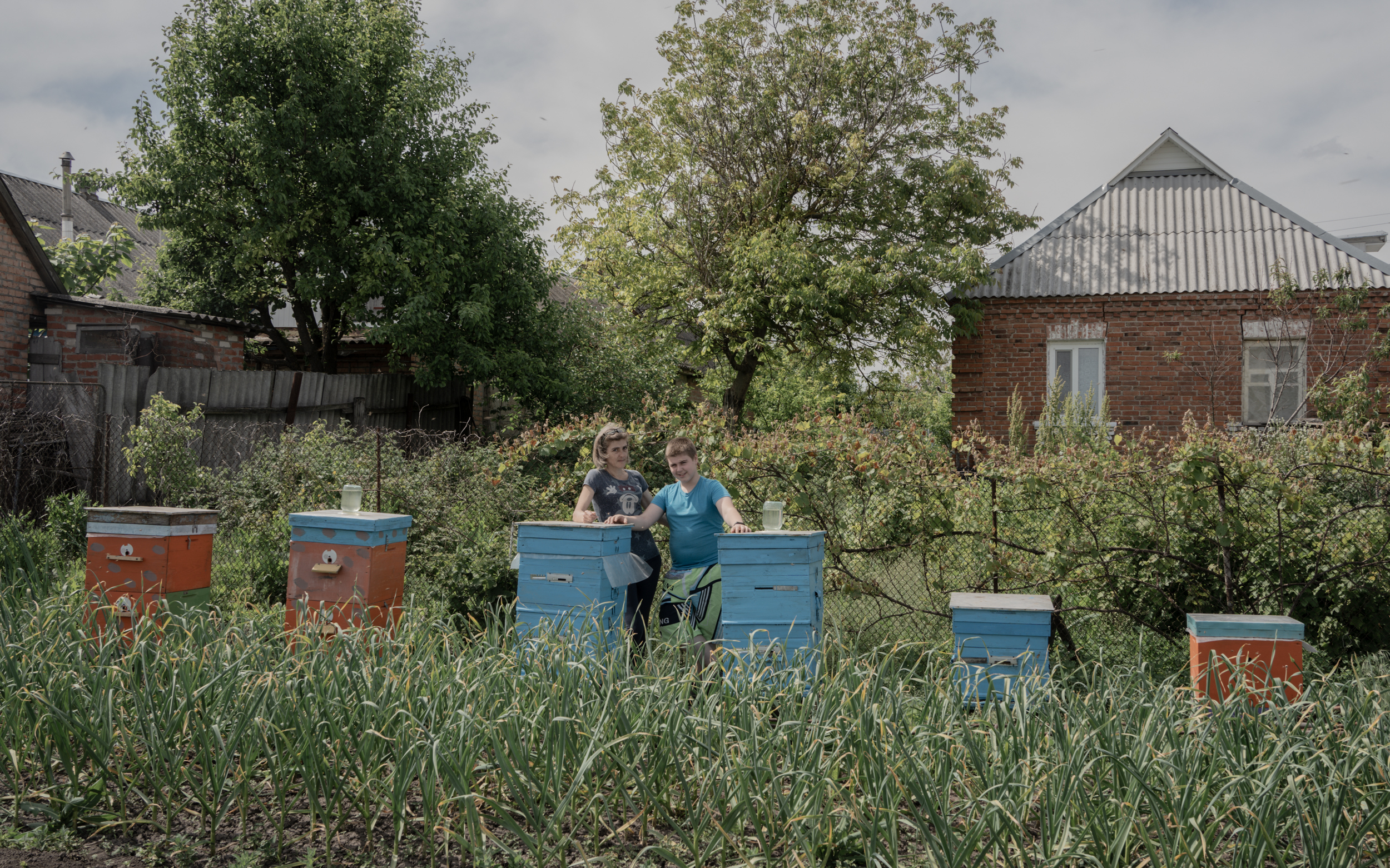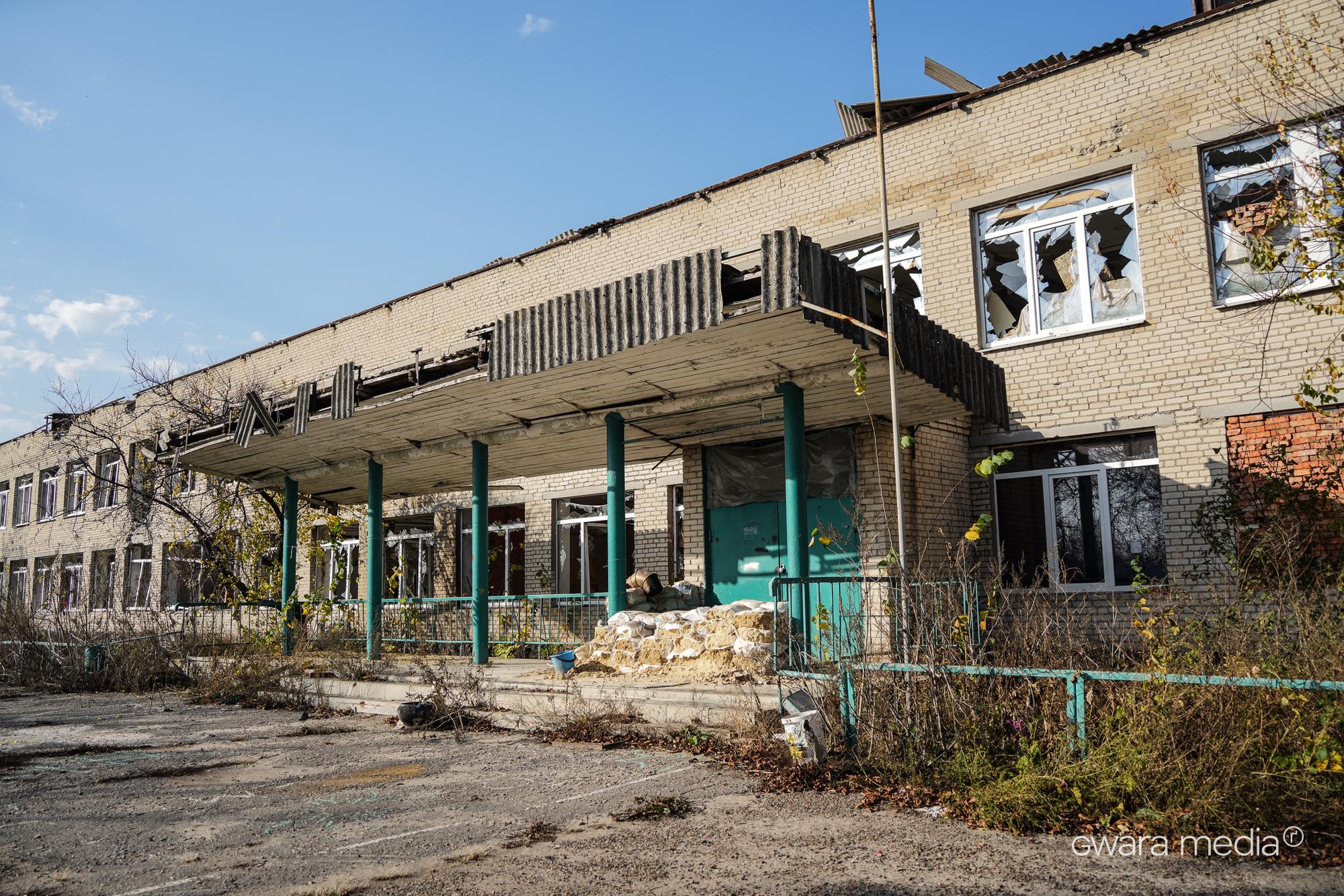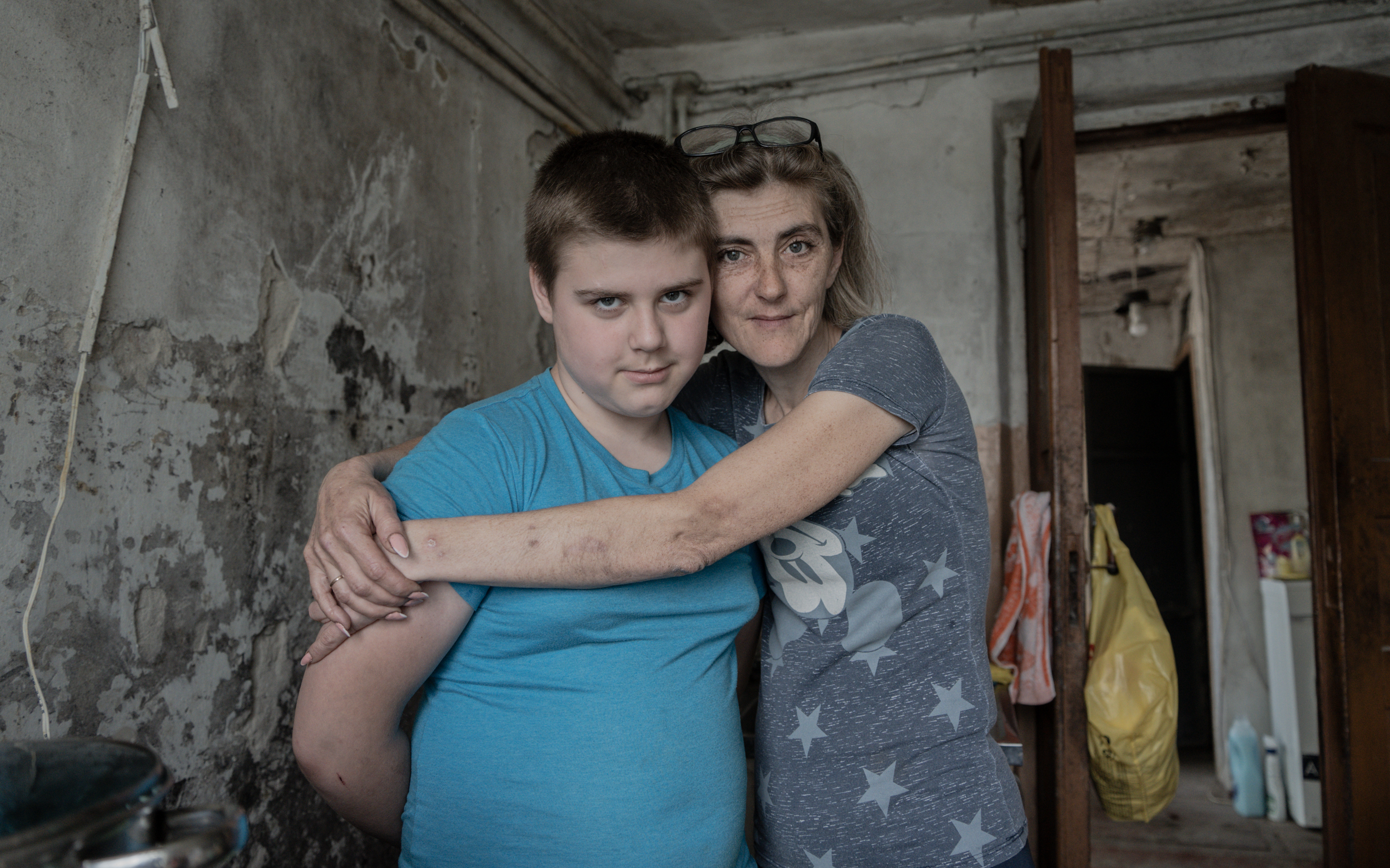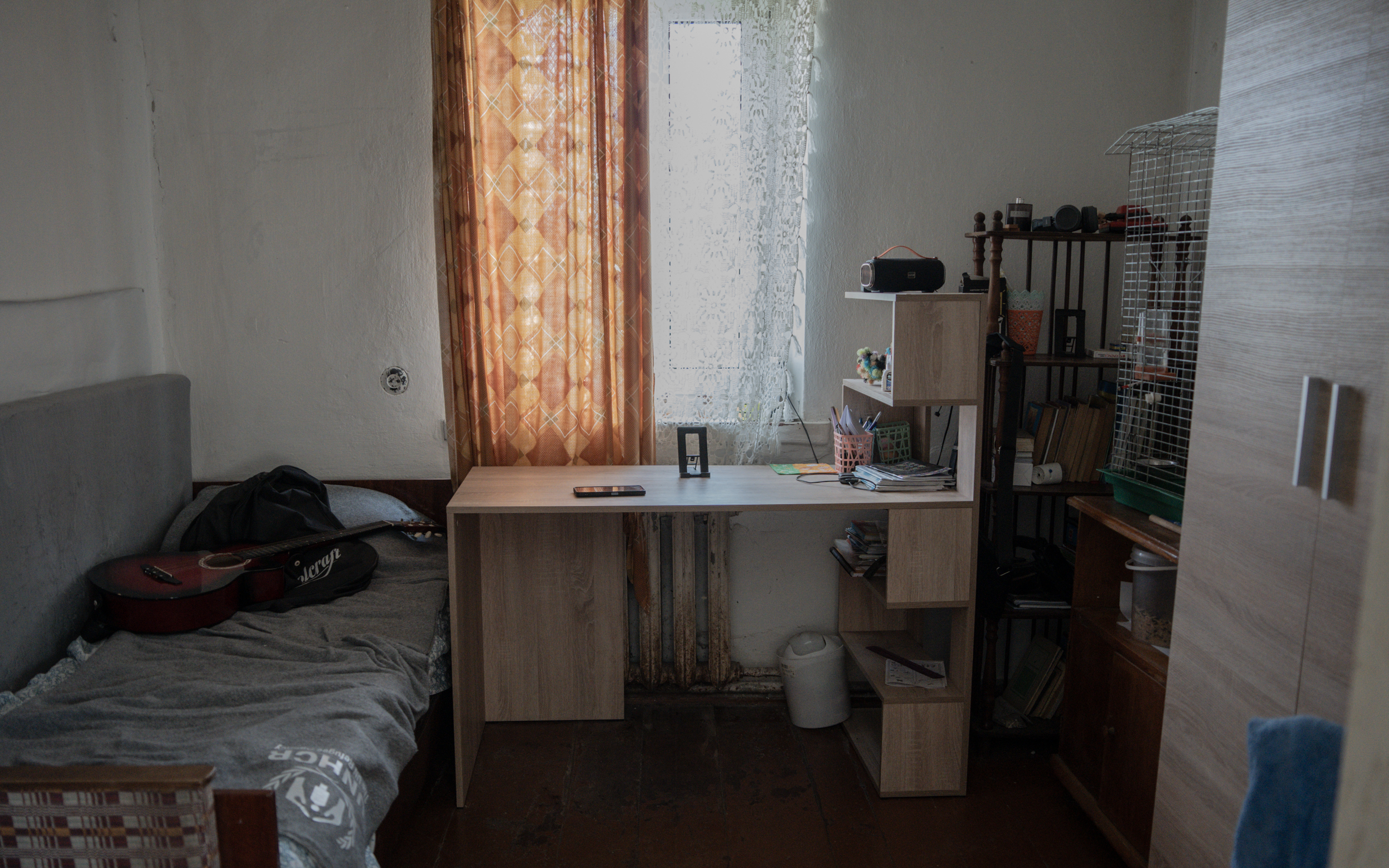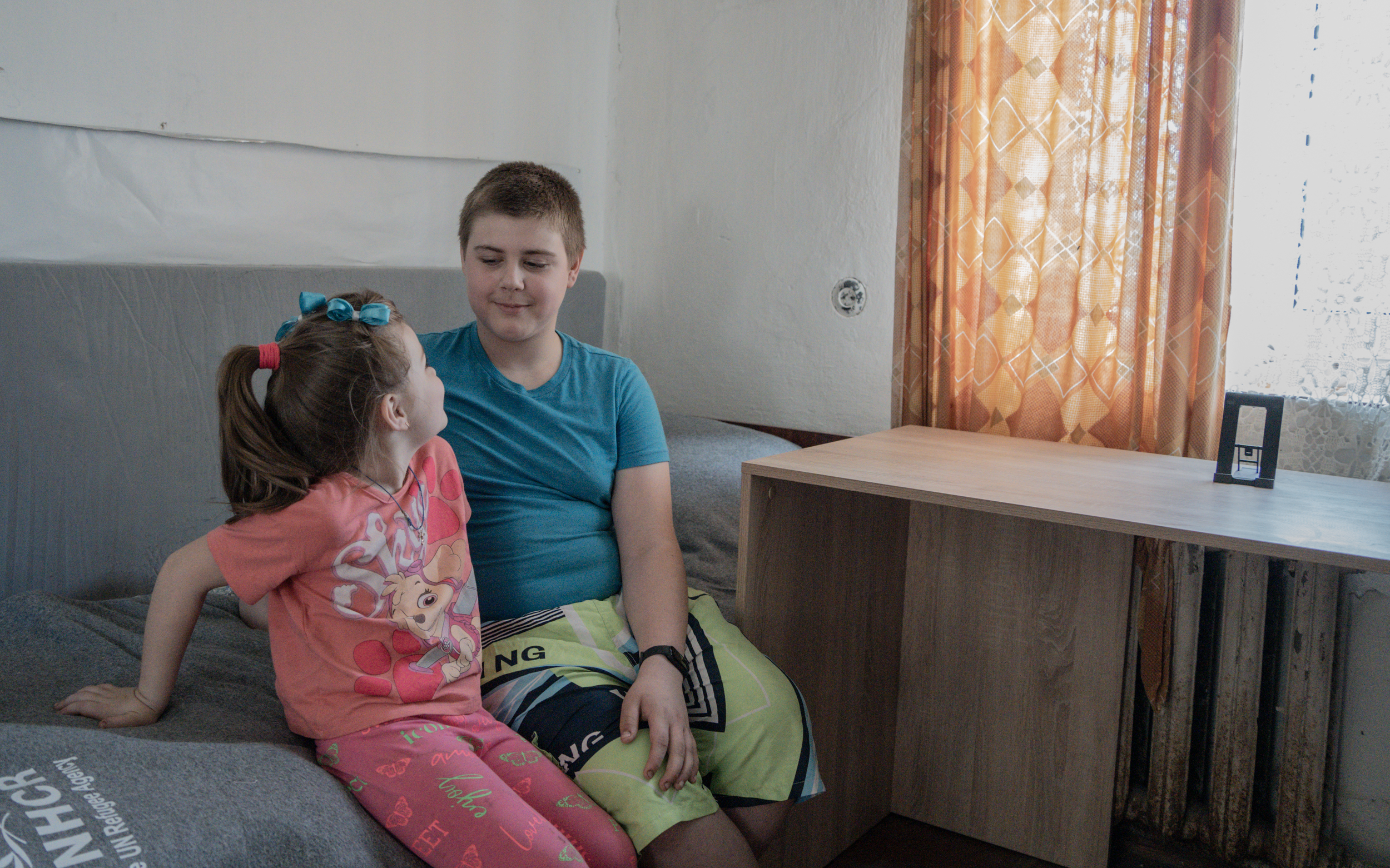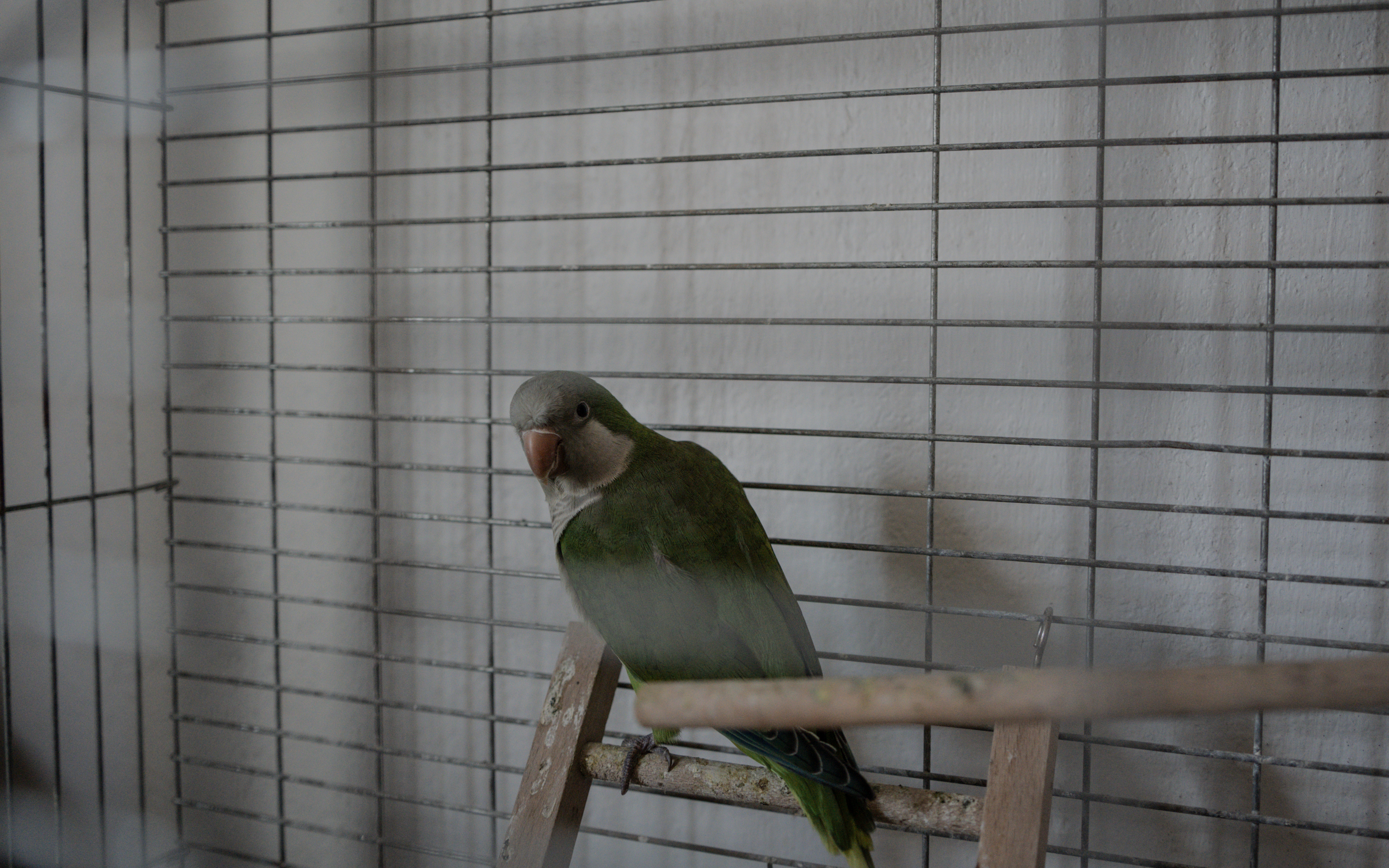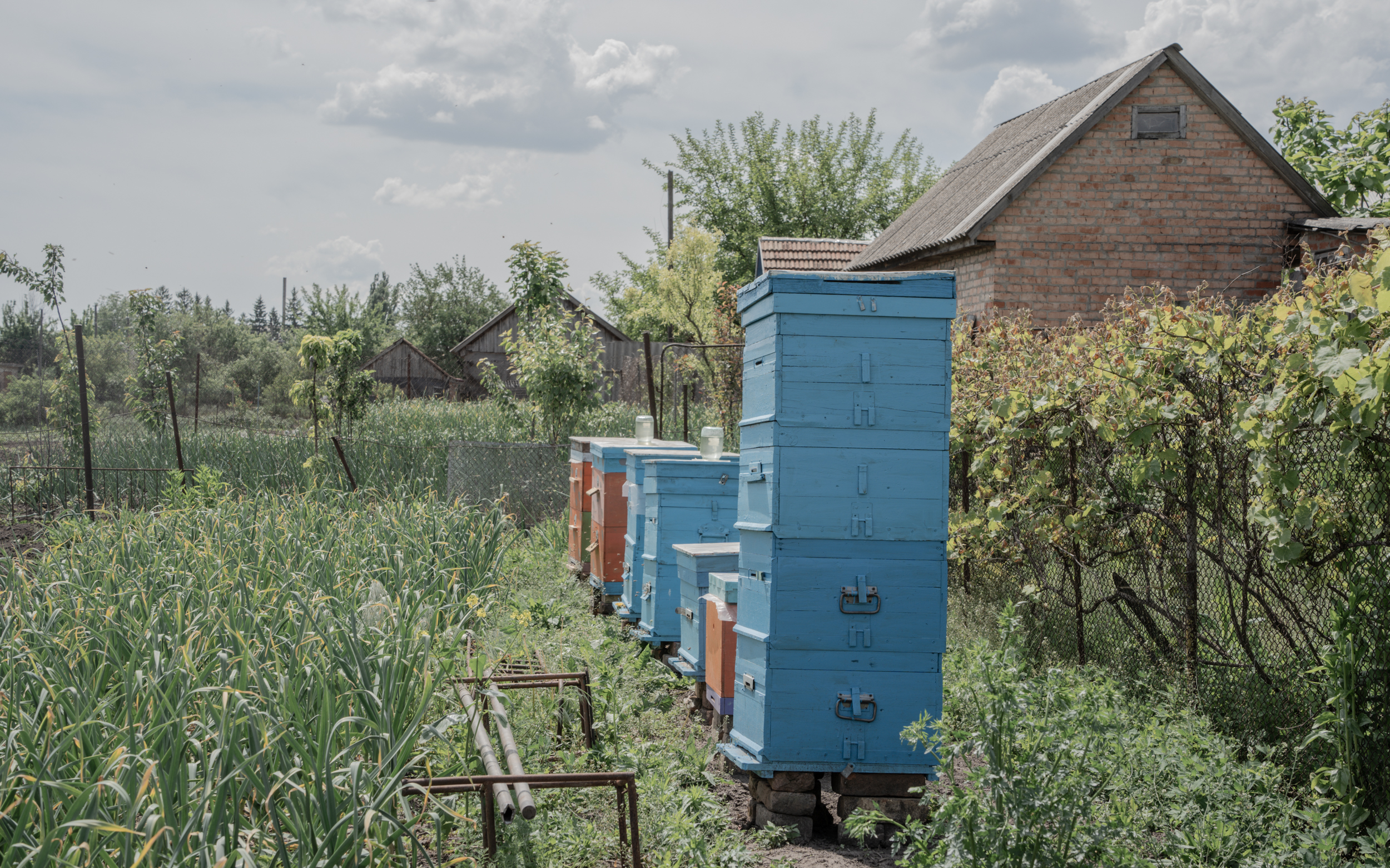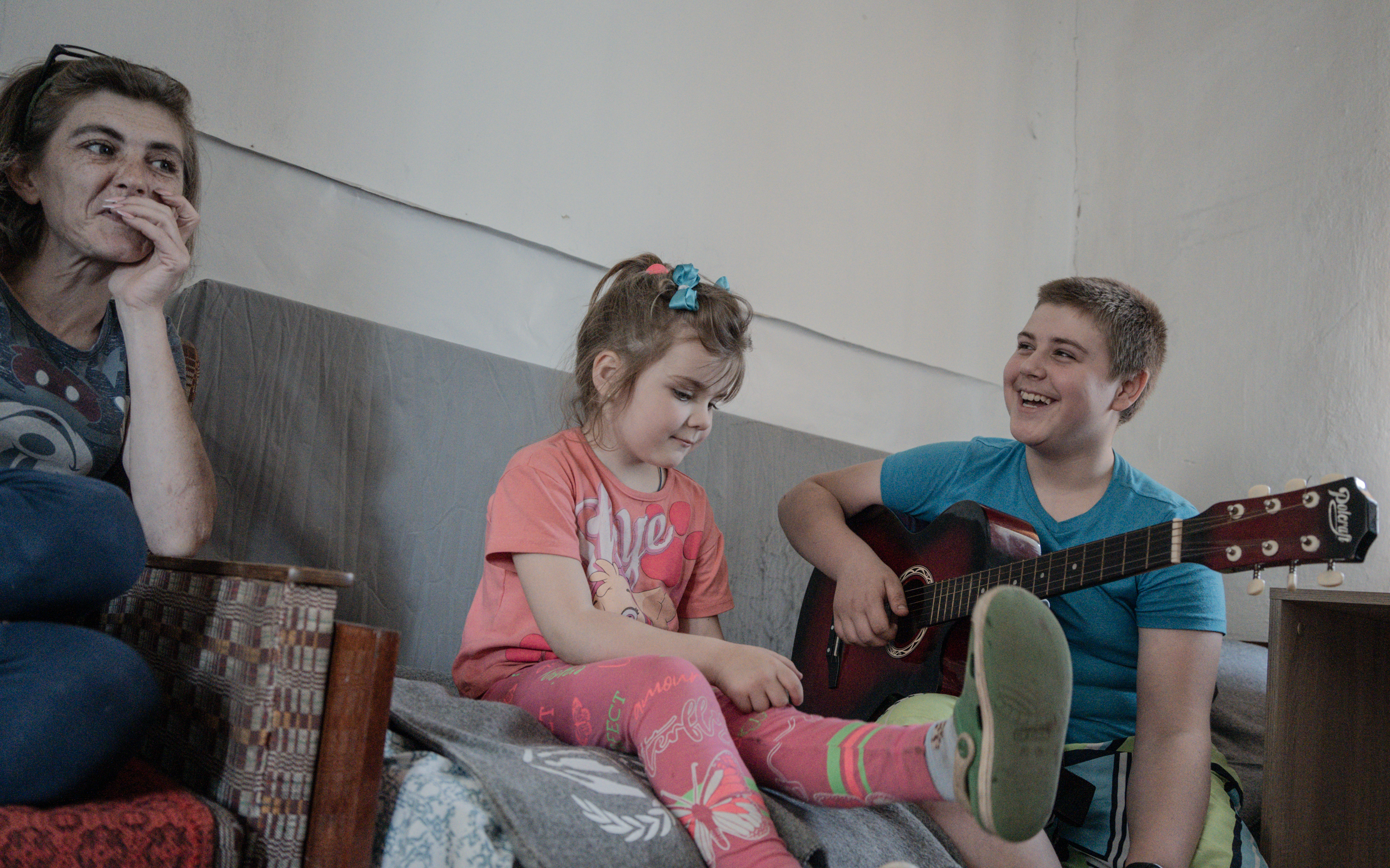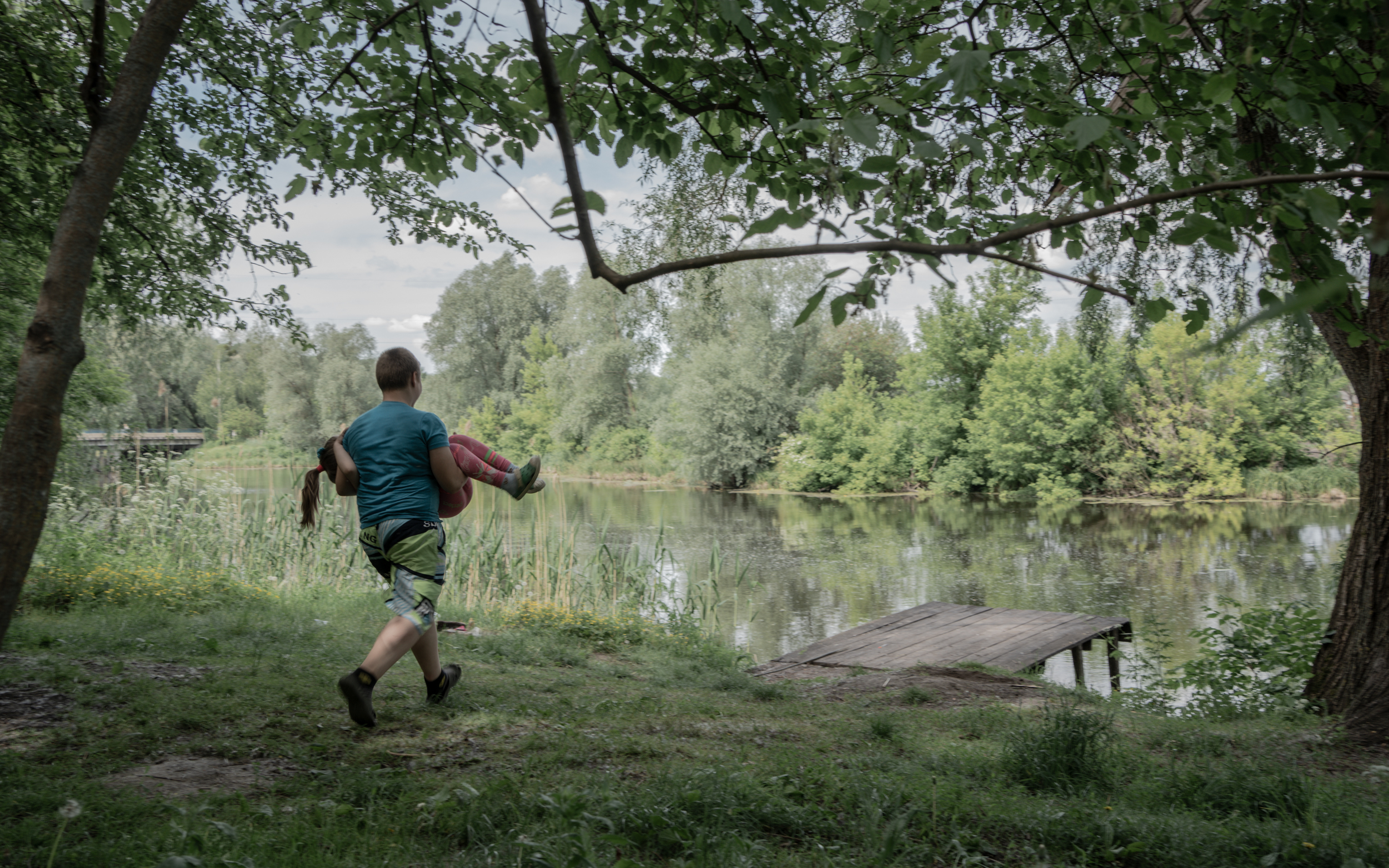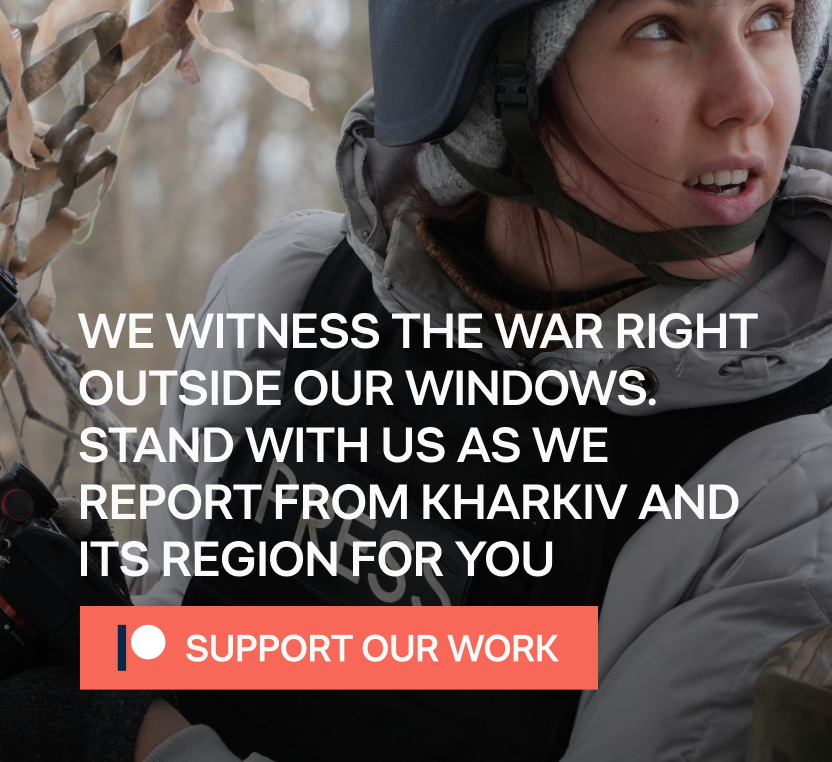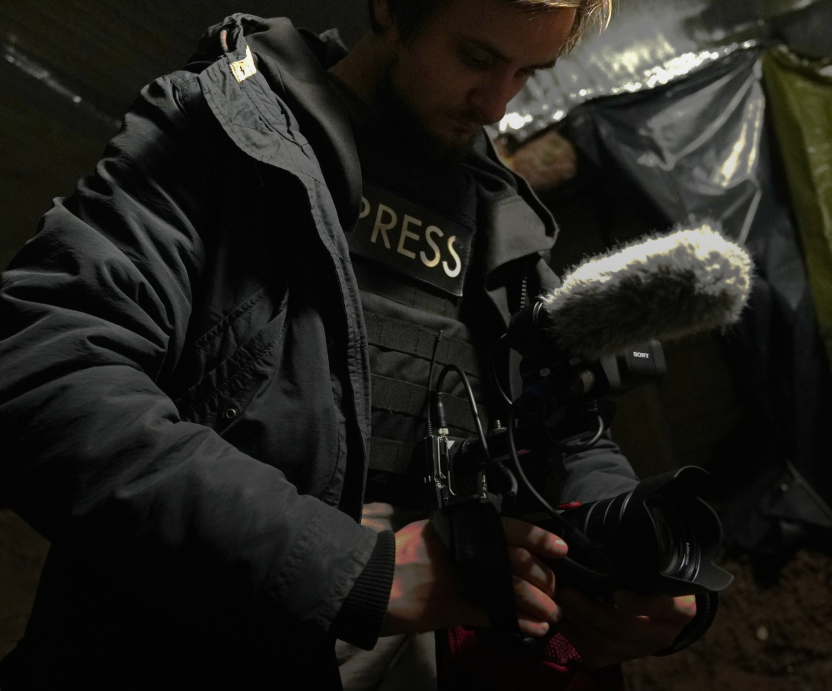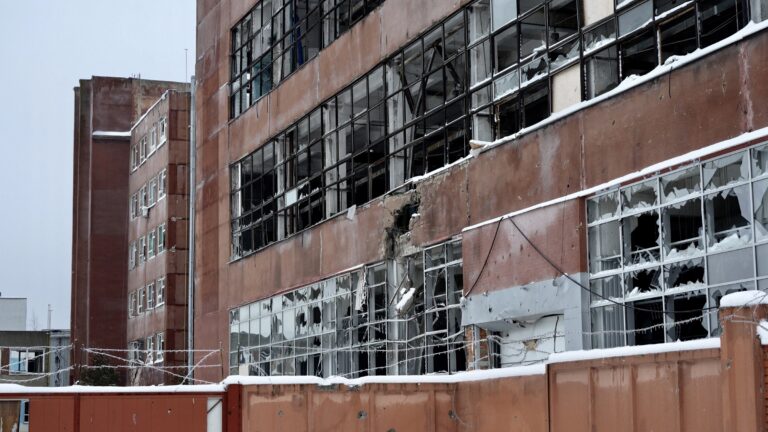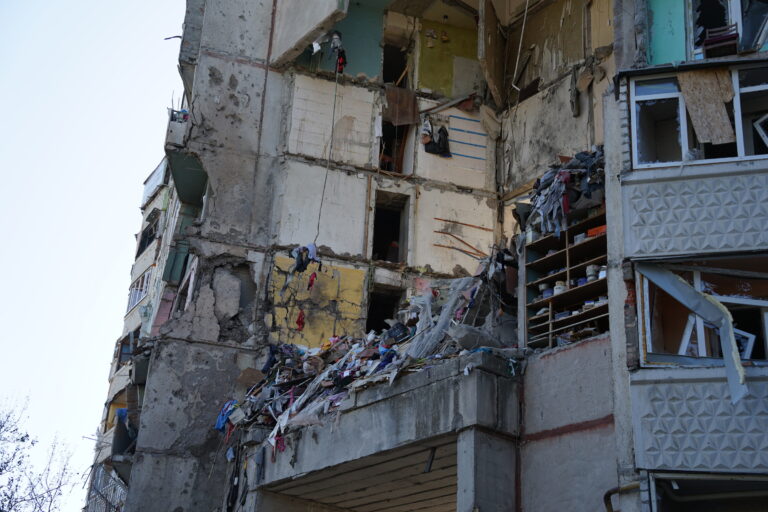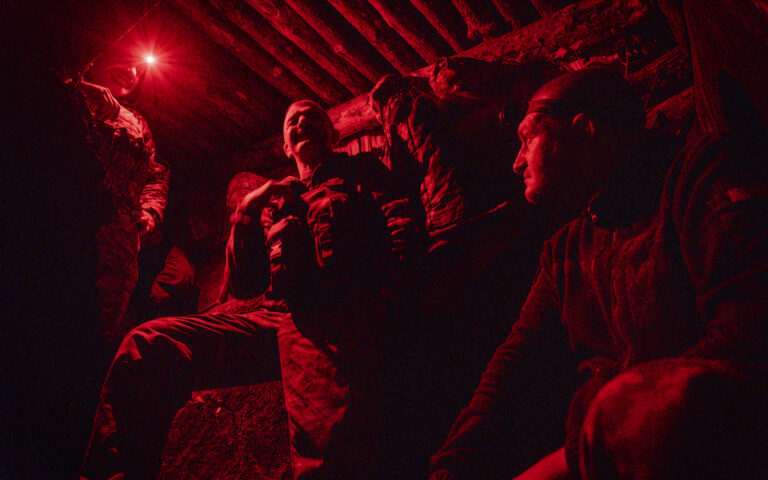On April 16, Yehor and his mother, Yana, left for Poltava Oblast from the Vesele village of Lyptsi community. Our journalist, Daria Lobanok, visited a family’s new house to catch up and talk about their life in a new place.
Mandatory evacuation
On April 11, the Defence Council of Kharkiv Oblast decided to announce the mandatory evacuation of families with children in 47 frontline settlements of Derhachi, Zolochiv, Lyptsi, and Borova communities. At that time, 182 children lived in those communities, including a 12-year-old Yehor.
“Just before that, on March 25, we went to Poltava Oblast to visit our relatives and celebrate my granddaughter’s birth. They’ve begged us to stay, but we refused,” Yana, Yehor’s mother, says.
Russia has been ramping up attacks on Kharkiv Oblast that spring. Days before Yehor’s birthday, April 15, the situation deteriorated. On April 16, you could enter the village of Vesele — which, translated from Ukrainian, means “cheery” — only if you had permission from the authorities. On May 10, Russia launched a large-scale ground assault north of the Kharkiv region, wanting to occupy Vovchansk and Lyptsi.
The Lyptsi community borders Russia. Vesele village, where the family lived, is 10 kilometers away from the border. At the beginning of the full-scale invasion, Lyptsi was occupied. Yehor and his mother stayed in their relatives’ place in Poltava Oblast, but as soon as Ukraine liberated the village and allowed people to come back, they returned home.
In the aftermath of deoccupation, Yehor became the only kid in the village, his mother’s main helper. He got into beekeeping and started raising bunnies.
In October 2023, Gwara Media journalists met the family during one of our work trips to liberated Kharkiv Oblast. Our community helped us raise money for Yehor to buy beehives. Watch Gwara’s report from Vesele below (English subtitles applied.)
But in 2024, right after Yehor turned 12, the family needed to leave their home again.
“She told us to leave because there’s war.”
Zavodske city is located about 300 kilometers from Kharkiv, in Poltava Oblast, with a population of 12,000. To get there by car from Kharkiv, you have to know the road well and have 4-5 hours of free time. It’s road is smooth, unlike the damaged ones in Kharkiv Oblast.
The weather is good. The city is filled with children’s voices, absent from the Vesele village for the last several years. Few schools, kindergartens, and hobby clubs for children work in the city.
“A sugar plant was here in the past,” Yana says. “Over 15,000 people work there.”
In half a year, Yehor got taller and a bit thinner. He lives with his mother, his niece, Zlata, grandparents, and two dogs.
Yehor shares his candies with the guests when he sees journalists arrive.
“How are you?”
Yehor drops his eyes down. His silence seems as eloquent as his words would have been.
His mother, eyes sad, says that half a week before Yehor’s birthday, Russians started to intensely attack their village.
The family has been holding on to their home until the mandatory evacuation has been announced.
“We were told we should leave, but we very much didn’t want to,” Yana says. Local officials came to their house to convince them to leave. Relatives reached out, too, all asking to evacuate. “My husband, elder son, and his wife called us. But we didn’t want to leave home. One day, a deputy head of the community, Serhii Kryvetchenko, came, but Yehor didn’t even [come out of the house] to say hi to him. Even though usually, he’s always running out to meet [our guests.]”
During the night before Kryvetchenko came, Yehor and his mother slept in the corridor because of intense Russian attacks. Blastwaves from attacks blew out their windows, again, for the fourth time. The attacks damaged the roof, too. They covered the holes in the roof with protective film.
Despite all of this, the family still didn’t want to leave the village.
“My [eldest] son called me and said if I don’t leave, he’ll come himself, tie me up, drop me in a car, and burn down the house so we don’t have anything to return to. And then he hung up on me,” Yana says.
Zlata, Yana’s granddaughter and Yehor’s niece, runs towards her.
“Yes, Zlata, when you called us, what did you say?” Yana asks about these times before the evacuation.
“To leave,” Zlata says.
“Why?”
“Because of the war.”
Zlata is five. He’s the daughter of Yana’s eldest son, Maks, the one who bought the house for the family here. Maks moved to Zavodske before the full-scale invasion for work.
How do you leave home when everything you have is there? Yehor’s beehives, rabbits, dogs, personal things. Yana had no idea. The head of the Lyptsi community, Oleksii Slabchenko, offered to give the family his car to leave.
They evacuated in two cars, a Renault truck, and an ambulance, managing to carry out the most important family belongings.
Right after Yana and Yehor evacuated, Yehor’s grandparents also moved to the Poltava region. They were reluctant to leave, but the Russian shelling forced them to.
“They didn’t want to leave for a long time. Until [the attacks] forced them to hide in the root cellar. They were unavailable for two days. We were very anxious. My [eldest] son wanted to go get them, but they managed to get out on their own,” Yana says.
Yehor’s grandparents brought the stuff Yana and Yehor forgot in the village — but left their own belongings at home because of it.
“But what of it? Everything we need, we’ll buy. The main thing is that everyone is alive,” Yana says. “My son told me that.”
So, the entire family moved to Zavodske. They’ll stay here until the Ukrainian army pushes the Russians from their home in Kharkiv Oblast.
“I will come back there even if they destroy the house. We’ll rebuild it anew. But I want to live in my home,” Yana says. Yehor nods, agreeing with his mother.
Yehor’s new room has a bed, a table near the windows, and a closet. A parrot sits in a cage in the corner. Yehor used to have two birds; one flew away before the evacuation. This one’s name is Grisha.
“We bought new wallpapers here because Yehor didn’t like the white walls,” Yaha says. “I said, well, who likes it? Everything was better at home.”
Yana says that the house they live in now needs much more work: cleaning, repairs. Eldest son and parents help her do that. Recently, Maks helped her connect electricity to the house.
Yana feels like she doesn’t belong in this new place. That’s why the work is so slow — she longs for her home constantly. To distract herself, she says, she tries to think that she’s a guest here, that she’s helping kids to clean up their house. She believes that soon, they’ll return to Vesele. She tells her son as such.
Yehor continues to raise rabbits (though one of them died before evacuation), still enjoys beekeeping. He doesn’t disturb the bees for the interview — they are resting during the day.
“I showed them to my brother and joked that the insects would fly beneath his [protective — ed.] costume and bite him. He was scared because of my jokes,” Yehor laughs.
The boy adds that his brother visits them every day to support them and help with the house.
When Maks lived in Vesele, he also built a house separate from his parents. His family had a tradition of gathering at one table, and he dreamt of inviting them for evenings to his new place. In the spring, Russians destroyed Maks’ house.
In Kharkiv Oblast, Maks was the one who got Yehor to his first karate class. It happened when his older brother was going to get married. While parents went out and prepared for the celebration, Maks stayed with Yehor.
“One time, they came home and told me that they were in Lyptsi, and there’s a karate class there. They both begged me to let Yehor go there. Maks promised to buy everything [equipment — ed.] and drive him to Lyptsi,” Yana recalls.
Yehor went to karate classes for four years until the Russian full-scale invasion. His trainer joined the army to protect Kharkiv Oblast. Last time they talked, his trainer was in the Kupiansk direction. Yehor gave him funds collected for the fundraiser that aimed to buy new hives for his bees.
“We went to karate competitions in Lyptsi and Kharkiv. We got medals. It’s good that my grandpa got them [from Vesele, when he was evacuating — ed.]. Because we’ve forgotten the certificates,” Yana says.
Yehor wants to return to karate, but only back home.
The main advantage of living in Poltava Oblast, the family believes, is that they can see each other more often. They have already celebrated Yehor’s birthday here.
When the family was evacuating, between arguing and urgency, Maks forgot about Yehor’s birthday and congratulated him only when they arrived at the new home.
“Back then, we arrived and unpacked a little bit. Nothing was sorted in the kitchen; everything’s disordered. Then, Maks got the cake with the candles in it. Everyone sang Happy Birthday for Yehor and set to celebrate.
Yehor runs for his phone to show the video with his family congratulating him. To buy that smartphone, Yana had to ask the head of the community to bring her to Lyptsi because, at that time, going in and out of the village had already been restricted.
“Before our trip, at night, a Russian missile strike killed an elderly couple. They didn’t let me leave our village, so Oleksii Mykolayovysh agreed to get me [to Lyptsi]. I had two hours to pick a present for Yehor,” the mother says.
Waiting for return
“It’s pretty unusual here,” Yehor says.
He’s struggling with experience. Yana says Yehor often cries, longing for home. Wakes up in the middle of the night.
In the first month in Poltava Oblast, he refused to go to classes.
“But he has to keep up with the program! At first, I gave him time to be sad, adapt — right now, I ask him to go to classes to compensate for the classes he missed,” Yana says.
Yehor says that he was in shock when the family moved here. But, according to his mother, this place has privileges, like offline school. Yehor isn’t eager to go to a new place, though. That’s why he keeps studying online with his classmates from his old school.
“I’m not forcing him [to go to the offline school — ed.], that’s his choice,” his mother says. At the same time, Yana says that, after moving to Zavodske, Yehor stopped expressing a desire to study at all. “He told me he’ll be studying only in his village.”
Although many children live in Zavodske, Yehor spends more time with his friends online or with his family. He often plays with his niece or takes walks with his mother.
Yana says that the teachers often ask how Yehor feels. Everyone’s worried about him and support him.
“The only thing I like here is that I can leave Yehor at home when he doesn’t want to join me in going somewhere. I couldn’t do that at Vesele because of the constant danger. Now, he can stay at home and rest,” Yana says. She notes it’s also good that Russian attacks aren’t startling them awake at night. They don’t have to get up and hide in the corridor.
“Now, no one is waking him up and yelling, “Son, son, get into the corridor,” Yana says to her son. He laughs.
Then, Yehor says that the habit of waking up early is still with him.
Other habits remained.
Recently, a thunderstorm passed through Poltava Oblast, and everyone thought it was a Russian attack.
“Grandmother was upset and scared. Grandpa walked around the room nervously and said that the sounds are very similar to explosions,” Yana says.
Yehor and his mother plan to go to the gym and find a guitar teacher in this new place. His mom says Yehor would love learning to play.
Reaching the end of the conversation, Yehor wants to show off a little. He takes his guitar and plays a children’s song, making everyone laugh in delight. The guitar and a songbook are from his home in Vesele, but his notebook with the chords has been forgotten there.
The most important thing is that Yehor and his mom are surrounded by their family that loves them, supports and helps them.
At the end of the interview, Yehor walks to the lake near his house. He plans to swim and rest during his summer holidays here.
All around here, nature is silent, beautiful. But Yehor and his mother are waiting — for Russians to be pushed back, for a moment when it’ll be possible to go home to Vesele.
Daria Lobanok wrote this article in Ukrainian to show some of the difficulties internally displaced people experience in Ukraine because of the Russian war, especially for kids. How challenging it is to socialize in an unfamiliar environment, away from everything you know and love. Thank you for reading it. Consider also supporting our Kharkiv-based newsroom on Patreon, BMC, or PayPal.
Read more
- Russians drop FAB-500 bomb on Kharkiv postal depot, kill 1, injure 10, including 8-month-old child (in photos)
